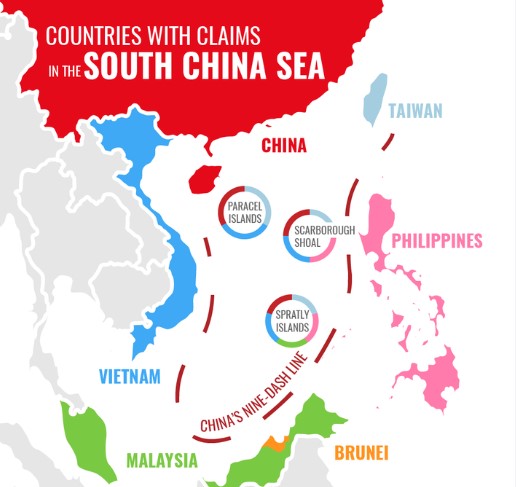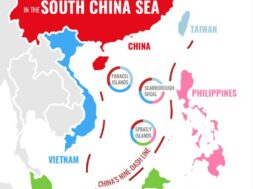
Roving Periscope: After India, 4 more Asian nations reject China’s recycled “standard maps”
Virendra Pandit
New Delhi: Imagine five countries rejecting in as many days an aggressive China’s ridiculous and unilateral claims on their borders—it happened this week but none of these countries dread an aging, toothless Dragon’s alleged fire-spitting anymore!
But this is the surest sign of multiple crises gripping China. Not just its plummeting economy, but also fragile polity and pulverized society are under extreme pressure from a possible collapse, forcing the pseudo-Communist-run authoritarian government to go back to the Stalinist basics: when existential challenges arise at home, fan xenophobic hysteria to divert the revolting people’s attention to the country’s borders.
It is with this intent that a crafty Beijing republished its dogeared “standard maps” this week in a bid to grab whatever salad it could from its neighboring countries’ plates and divert the attention overseas.
China’s exorbitant claims are reminiscent of its invasion of East Ladakh in India in 2020. The People’s Liberation Army (PLA) returned with an unspecified number of body bags. India has since refused to budge an inch in all 19 rounds of border talks and to delink the border with business as China desired.
This week, not only did India just reject China’s fresh and bogus claims on Arunachal Pradesh and Aksai Chin, but four more countries have also followed New Delhi.
Apparently, Chinese President Xi Jinping was looking for an alibi to skip the G-20 Summit in New Delhi (September 9-10). India rejecting his ‘map diplomacy’ may have provided him a reason to avoid it!
Vietnam, which fought a bloody war against the Chinese invasion in February-March 1979 during then-Indian Foreign Minister Atal Behari Vajpayee’s official visit to Beijing, reacted sharply on Friday.
Hanoi said it “resolutely opposes all China’s claims in the South China Sea based on the dotted line,” a Vietnamese foreign affairs ministry spokesman said.
Beijing’s official map released this week violates Vietnam’s sovereignty over the Spratly and Paracel Islands and jurisdiction over its waters, Hanoi said in a statement posted on the nation’s government news website.
China’s sovereignty and maritime claims based on the nine-dotted line on the map are “invalid,” said spokesman Pham Thu Hang.
The Philippines also refused to recognize China’s expansive claims in the South China Sea. And so have the governments of Malaysia and Taiwan, which also issued strongly-worded statements accusing Beijing of claiming their territory.
So many outright rejections have rattled China.
When asked about the map controversy at a regular press briefing on Wednesday in Beijing, an embarrassed Foreign Ministry spokesman Wang Wenbin said his government hoped the “relevant sides can remain objective and calm and refrain from overinterpreting.”
He claimed that China released the map so publishers, companies, and others have an official version to reference. Foreign firms sometimes run into trouble with the Chinese government over how they use maps.
Interestingly, China claims more than 80 percent of the South China Sea on the basis of a 1947 map showing vague dashes – the nine-dash line — looping down to a point about 1,100 miles (1,800 kilometers) south of Hainan Island.
Vietnam, the Philippines, Brunei, Malaysia, and Taiwan all claim parts of the same maritime area and have sparred with China over where their boundaries lay.














